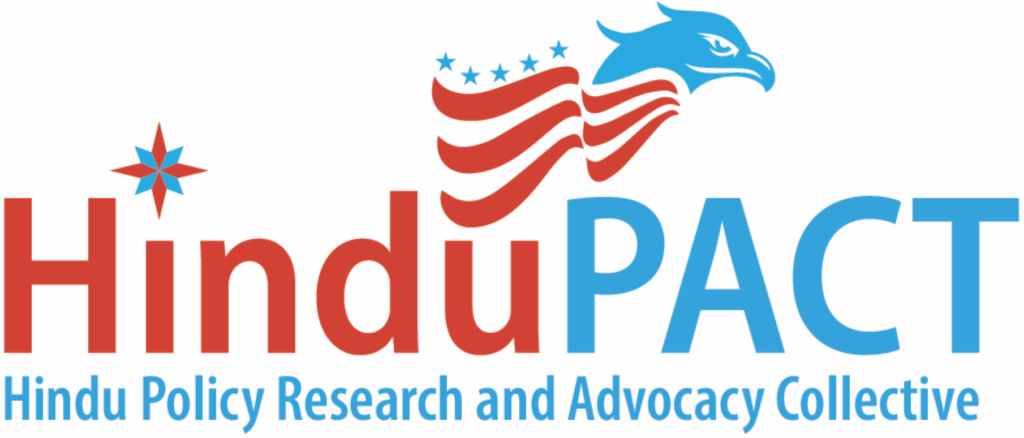(This report utilizes SamyaTattwa for Hindu News by American Hindus Against Defamation (AHAD), technology provided by tattwa.ai)
Published March 27, 2025, 2025
India and Religious Freedom: Debunking the USCIRF 2025 Annual Report
The United States Commission on International Religious Freedom (USCIRF) recently released its 2025 Annual Report, painting a concerning picture of religious freedom in India. While the report aggressively labels India as a country of particular concern, a deeper and unbiased analysis presents a starkly different reality. It’s critical to address and rectify such narratives that overlook India’s intrinsic diversity, democratic values, and constitutional protections.
Firstly, the USCIRF alleges deterioration of religious freedom driven by the Bharatiya Janata Party’s (BJP) “hateful rhetoric”. However, this assertion dismisses India’s strong constitutional framework that explicitly safeguards religious freedom under Article 25. India’s government, led by Prime Minister Narendra Modi, emphasizes national unity, security, and socio-economic development for all citizens irrespective of their religious affiliations. Numerous welfare programs introduced by the Modi government, such as the PM Awas Yojana, the Ujjwala Yojana, and the Ayushman Bharat health scheme, explicitly benefit minorities and economically weaker sections of society. The narrative that portrays the BJP as inherently anti-minority ignores the considerable socio-economic advancements achieved for all communities, including Muslims and Christians, under BJP governance.
The USCIRF report also expresses fears regarding the Citizenship Amendment Act (CAA) and the National Register of Citizens (NRC). It claims these policies induce anxiety among Muslims about potential citizenship revocation. However, the CAA is explicitly designed to expedite citizenship for persecuted minorities from neighboring Islamic nations who have faced historical persecution. It does not impact Indian Muslims in any way. The NRC is simply a registry mechanism to identify illegal migration irrespective of religion. Unfortunately, misinformation has fueled unnecessary anxiety. Academic analyses, such as those by scholars like Agarwal (2020), have clarified these policies as measures addressing historical migration challenges and border security concerns rather than religious targeting.
Another significant USCIRF claim highlights the construction of the Ram Temple in Ayodhya atop the ruins of the Babri Masjid as a demonstration of Hindu nationalism overpowering minority rights. The reality is profoundly different. The Supreme Court of India’s judgment on the Ayodhya case was the culmination of decades-long legal processes involving extensive historical and archaeological evidence. This landmark decision symbolized reconciliation, respecting the sentiments of both communities through legal avenues. Portraying this judicial resolution as religious discrimination grossly misrepresents India’s robust and independent judicial system.
USCIRF further criticizes anti-conversion laws and laws prohibiting cow slaughter, branding them as mechanisms designed to target religious minorities, particularly Christians and Muslims. These laws aim solely to protect vulnerable communities from unethical conversion practices involving coercion or deception and reflect deep-rooted cultural and ecological ethics. India’s constitutional provisions explicitly prohibit forced conversions, and anti-conversion laws merely reinforce this principle. Similarly, cow protection laws are grounded in cultural reverence for cattle, integral to India’s agrarian communities. Instances of misuse, whenever identified, face strict judicial scrutiny, underscoring that such laws function within constitutional boundaries and are not anti-minority.
The USCIRF report’s suggestion that India systematically employs hate speech and misinformation targeting minorities during electoral campaigns also deserves scrutiny. India’s vibrant democracy ensures robust electoral discourse. While political rhetoric can sometimes become intense, mechanisms like the Election Commission of India’s Model Code of Conduct enforce fairness and accountability, addressing violations impartially. The blanket portrayal of India’s political environment as inherently discriminatory is an oversimplification and ignores transparent enforcement measures.
Accusations of transnational repression directed at Sikhs and other minorities abroad by the Indian government represent another contentious claim. Such allegations seem politically motivated and lack substantial evidence. The Indian diaspora, including Sikhs worldwide, actively and positively engage with India’s governance processes. India’s Ministry of External Affairs transparently addresses international concerns through diplomatic channels. Isolated diplomatic disputes should not be conflated with systemic repression.
Moreover, the USCIRF critiques India’s use of laws like the Unlawful Activities Prevention Act (UAPA) and the Foreign Contribution Regulation Act (FCRA) as oppressive tools against minorities and civil society organizations. However, these laws primarily safeguard national security and integrity, ensuring transparency in foreign funding and preventing terror financing. India’s judiciary consistently scrutinizes their implementation, often providing relief to individuals wrongly accused. Such judicial interventions underscore India’s checks and balances system, disproving assertions of targeted discrimination.
The report’s recommendation to classify India as a “Country of Particular Concern” and apply targeted sanctions would significantly harm strategic bilateral relations and ignore India’s democratic stability and regional importance. Such measures would be disproportionate responses based on selective reporting, overlooking India’s extensive religious pluralism and democratic structures. Geopolitical analysts, including Panda (2023), emphasize the critical role India plays as a democratic ally in the Indo-Pacific, asserting that sanctions based on exaggerated claims would severely undermine mutual geopolitical interests.
Lastly, USCIRF claims that vigilantism associated with cow protection systematically targets Muslims. While unfortunate incidents of violence by vigilantes have occurred, Indian authorities consistently prosecute offenders irrespective of religion. Leaders across political and social spectra have repeatedly condemned such violence, emphasizing that protecting cultural values must never lead to unlawful actions.
Overall, the USCIRF’s portrayal of India as increasingly intolerant and discriminatory distorts reality and omits substantial evidence demonstrating India’s consistent and rigorous application of constitutional safeguards, cultural inclusivity, judicial oversight, and transparent governance. India remains a vibrant, pluralistic democracy where minorities thrive and actively participate in all societal facets. It’s crucial to counter misrepresentations to foster better international understanding, recognizing India’s multifaceted socio-cultural dynamics and its robust democratic framework that unequivocally upholds religious freedom for all citizens.

